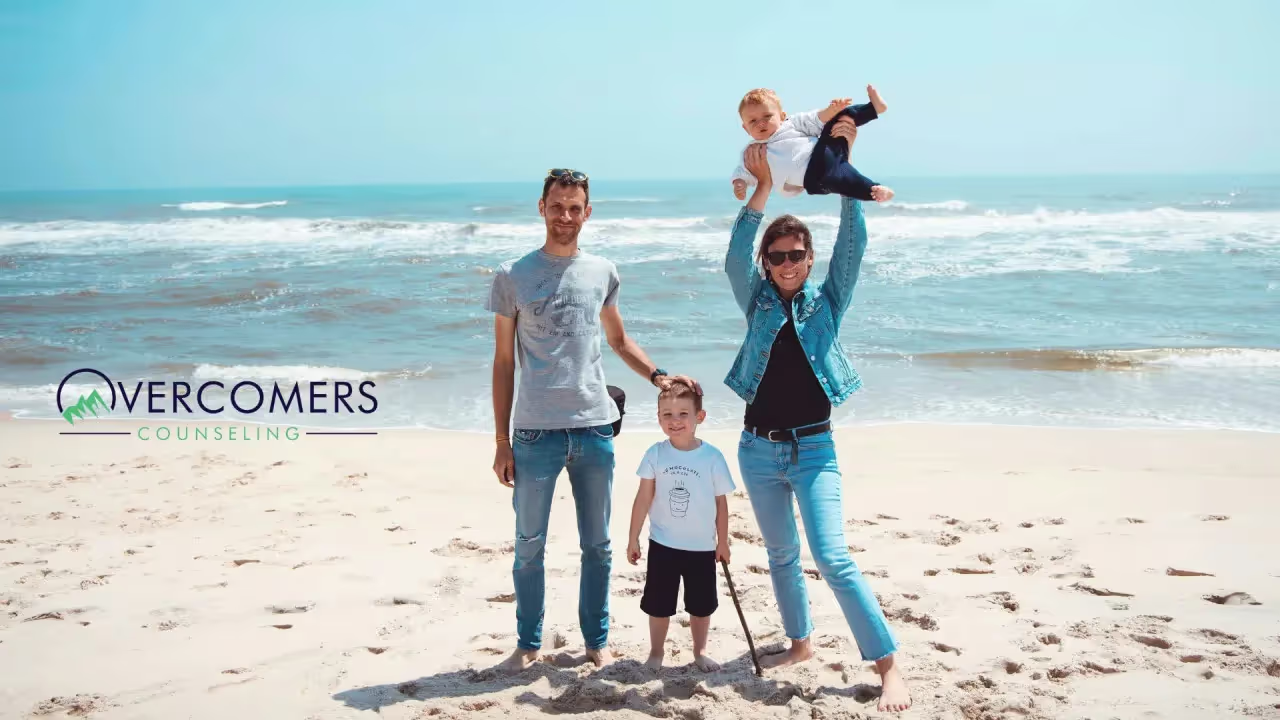Family, the cornerstone of our lives, shapes us into who we are and plays an irreplaceable role in our personal development.It is within this intimate...

Family, the cornerstone of our lives, shapes us into who we are and plays an irreplaceable role in our personal development.It is within this intimate circle that we first learn about love, trust, compassion, and forgiveness.However, to foster and maintain harmonious family relationships, it's essential for us to continuously strive to be better individuals.Being a better person for your family doesn't just mean being there physically; it involves emotional presence, understanding, respect, and taking responsibility for one's actions.The impact of such efforts resonates deeply, leading to stronger bonds, open communication, and a nurturing environment that allows each family member to thrive.In essence, when we become better for our families, we not only enrich their lives but also find ourselves growing and evolving in the process.
Effective communication plays a crucial role in fostering strong and healthy relationships within a family.It's not just about the words we use, but also our tone of voice, body language, and even our silence.When communication is open and effective, it can help to resolve conflicts, build trust, and strengthen familial bonds.Here are some tips for improving communication skills with family members:
Being able to step into another's shoes and see things from their perspective fosters deeper connections and minimizes conflicts.
Here are some strategies to develop empathy and understanding towards family members:
Spending quality time with family is vital for building stronger relationships and creating lifelong memories.It's during these shared moments that we truly connect, understand each other better, and foster a sense of belonging among family members.This time together can be filled with various activities that cater to everyone's interests. Here are some suggestions:

Taking responsibility for one's actions is a pivotal aspect of maintaining healthy family relationships.It means acknowledging our mistakes, learning from them, and making an earnest effort to rectify any harm caused.When family members take responsibility for their actions, it cultivates a sense of trust and respect among each other.Instead of blaming others or avoiding the consequences, accepting responsibility demonstrates maturity and integrity.This not only sets a positive example for younger family members but also fosters an environment of openness and honesty.In such an atmosphere, family members feel more comfortable expressing their feelings and thoughts, leading to improved communication and stronger bonds.Moreover, taking responsibility can help resolve conflicts more constructively, promoting understanding and empathy, and ultimately strengthening the fabric of familial relationships.
There may come times when family conflicts or issues become too overwhelming to handle independently, and it's in such situations that seeking professional help like family counseling can be beneficial.Professionals such as therapists or counselors have the skills and tools to navigate complex emotional landscapes and can provide objective, non-judgmental guidance.They can help identify the root causes of issues, facilitate productive communication, and provide strategies for resolution.Moreover, these professionals can assist individuals in understanding their emotions and behaviors better, fostering personal growth.This self-awareness and personal development can play a significant role in becoming a better person for your family.It can lead to improved empathy, patience, and communication - qualities that strengthen familial relationships.Therefore, there should be no stigma or hesitation in seeking professional help when needed; it's a step towards healthier relationships and personal well-being.
Throughout this discussion, we've explored various facets of becoming a better person for your family.We emphasized the significance of open communication, understanding, respect, and forgiveness in fostering healthy family relationships.We highlighted the joy and bonding that comes from spending quality time together and participating in shared activities.We underscored the importance of taking responsibility for our actions and how it builds trust and respect within the family.Additionally, we recognized that seeking professional help, like family counseling, can be a powerful tool in navigating complex emotional issues and promoting personal growth.Each of these aspects contributes to creating a nurturing, supportive, and loving family environment.As we conclude, let this serve as an encouragement for you to take positive steps toward becoming a better person for your family. Every small change can make a big difference, and it's never too late to start.
You can adapt to stressors and new situations by looking at the big picture, focusing on the positive, reframing problems, and adjusting your standards when necessary. Setting reasonable standards is a surefire way to avoid unnecessary anxiety.
If your emotions are interfering with your ability to perform at work, consider discussing your situation with your supervisor or human resources department. They may be able to provide accommodations or resources to support your well-being.
The techniques activate the parasympathetic nervous system, which increases tolerance to distress, decreases physical discomfort, slows impulsive behaviors, and helps redirect a person's focus to bring it back to the present.
No prior experience is required in order to take part in a life coaching course offered by Overcome With Us. All courses are designed for beginners or those looking for refresher courses that focus on different aspects of personal growth and development.
Anyone who wants to improve their mental health and overall well-being can benefit from mental health life coaching.
It is particularly helpful for individuals experiencing emotional or mental health difficulties.
To avoid unnecessary stress, avoid people who cause you anxiety, and avoid sensitive topics with others. Shorten your to-do list, and learn how to say no; that is, know your limits so you don't take on more than you can handle.